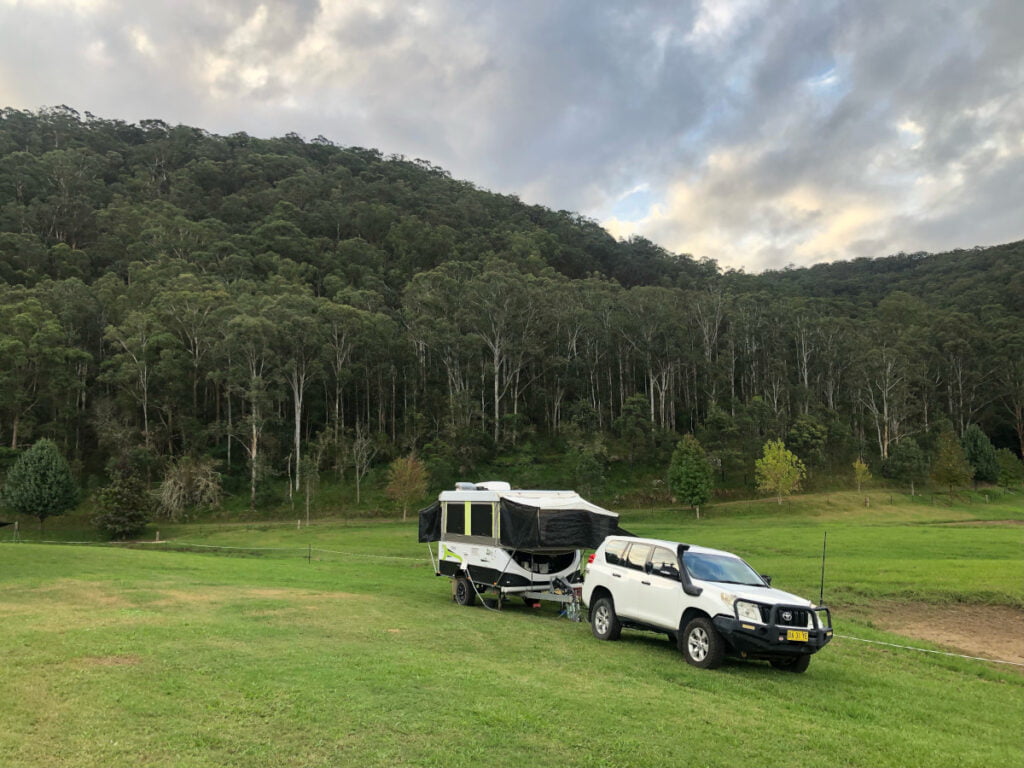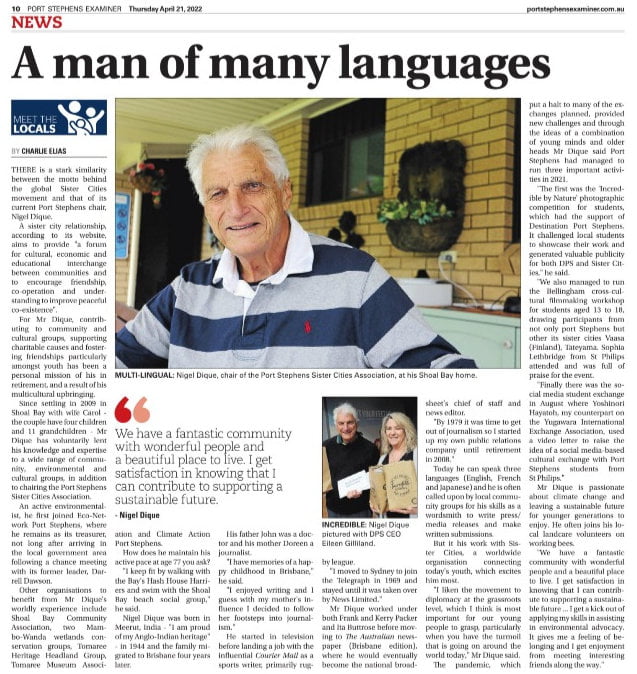
Preventing burnout
Maintaining the energy levels required to be an optimistic, positive and productive volunteer is difficult. Research on volunteers and people working in the helping professions have shown they are highly susceptible to burnout. Stressful, physically demanding, mentally draining and emotionally charged circumstances can mean volunteers find themselves exhausted, feeling hopeless, being negative and unproductive. Preventing burnout is about finding the right balance between contributing what you can and replenishing your own energy reserves.
Nigel Dique, an executive member of EcoNetwork Port Stephens, provides an example of somebody who has found that balance. In a recent Meet the Locals article in Port Stephens Examiner we read about how Nigel contributes to community, environmental and cultural groups and supports charitable causes. When I asked Nigel about his tips for staying healthy, motivated and engaged, he talked about the benefits of exercise and maintaining his support networks, “As a 77-year-old I find you’re never too old to exercise. The benefits outweigh any discomfort from making the extra effort. It’s a lot more fun to work out and socialise with friends.”
Current research supports Nigel’s recommendations about looking after yourself so that you can contribute in meaningful ways. Some of the suggested strategies include:
- Do not over schedule your time. Acknowledging that you can not take on extra tasks without reducing others is a first step to not overcommit. Prioritising time for yourself is encouraged so that you generate the energy needed to help others.
- You are allowed to say ‘no’ and ask others for help. Make informed decisions about what is realistic and achievable for you. Retain control and do not allow others to demand more from you than what you can give.
- Recognise your limits. Become aware of the activities that give you energy and the ones that sap your energy. Recognise when you are feeling tired, negative or overwhelmed. Look for the signs that you need to recharge and take steps towards supporting yourself.
- Enjoy the journey. Take time to laugh, have fun, enjoy the company of others, feel the joy in contributing with others and savour the moment.
- Talk with a trusted someone about your feelings. Many volunteers experience burnout so chances are the people you are working with have felt overwhelmed. They might be the people you can talk to or you might like to talk with someone confidentially who can help you to develop a tailored plan to help yourself.
If you have enjoyed this segment of Get Involved keep an eye out for next month’s topic ‘Benefits of collaboration’. Send comments, feedback or ideas for new topics to alisonrogers@econetworkps.org
References and further reading:
- Five ways to look after yourself while volunteering
- How to ask for help
- Tips to recognise and manage burnout
- Managing Volunteer Burnout and Stress
- Resilience Only Gets You So Far: Volunteer Incivility and Burnout
- Retaining volunteer mediators: Comparing predictors of burnout
- Elias, C. (2022) A man of many languages: Meet the Locals. Port Stephens Examiner. Accessed: April 21, 2022
- Beyond Blue
- Lifeline


